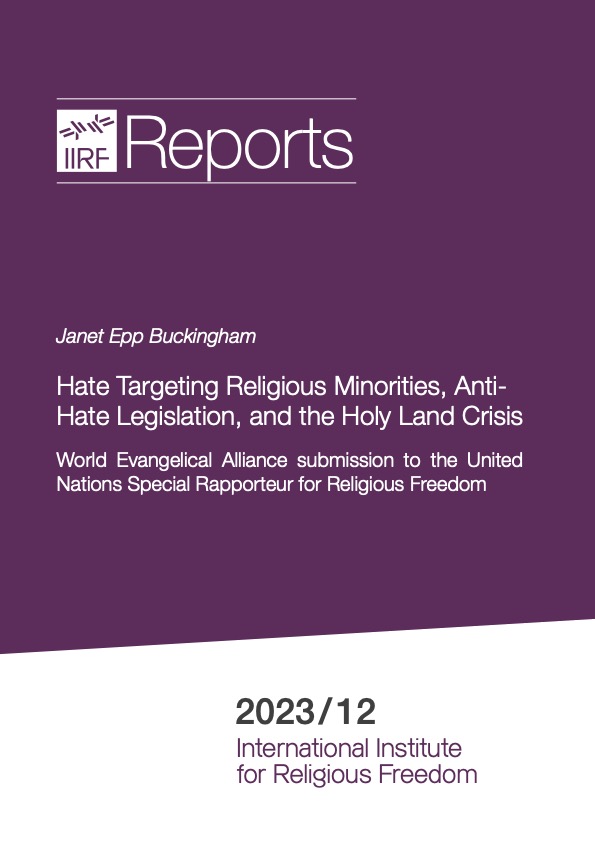Introduction
 We wish to thank the Special Rapporteur for addressing the important issue of hate speech in relation to freedom of religion or belief. In this submission, we show how hate speech is often used to target and marginalize religious minorities. We make a number of recommendations, which we hope will assist the Special Rapporteur in addressing her mandate.
We wish to thank the Special Rapporteur for addressing the important issue of hate speech in relation to freedom of religion or belief. In this submission, we show how hate speech is often used to target and marginalize religious minorities. We make a number of recommendations, which we hope will assist the Special Rapporteur in addressing her mandate.
The World Evangelical Alliance (WEA), established in 1846, represents some 600 million evangelical Christians worldwide. These Christians live in a wide range of circumstances. Some live where Christians are in a majority and where government policy may reflect that reality. Others live in secret under government regimes where it is illegal to practice their faith. It is therefore difficult to make generalizations about their collective experience of hatred. However, we would like to take the opportunity to respond to this call for input and illustrate the complexity of the issues.
The WEA has long addressed issues of religious freedom. We have identified a pattern that leads up to outright persecution. This pattern generally starts with disinformation and hate speech. Once the society accepts the disinformation and spread of hatred towards the religious group, policies of discrimination are facilitated. Discrimination is then followed by persecution. Clearly, hate speech can be dangerous for those it targets.
On the other hand, we are currently witnessing a trend among states, particularly in the West, of instituting increasingly strict laws restricting free speech on the grounds that it could constitute hate speech. For evangelical Christians, this causes concern when the restrictions prohibit legitimate religious beliefs, particularly about the sanctity of life and human sexuality. Although courts have upheld the right to religious expression thus far, the fact that some Christian leaders have faced criminal trials for publicly expressing religious views is concerning.
In this submission, we address the paradox of the rise of hatred targeting religious minorities and the adverse impact that anti-hate legislation can have on legitimate religious expression. We end our observations with how this is playing out in real time in the current crisis in the Holy Land.